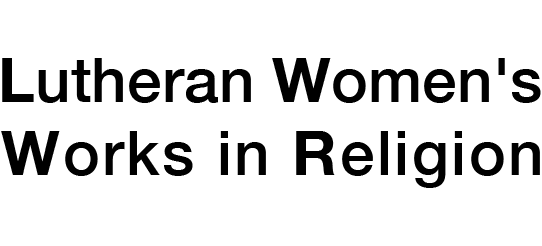Category: Theology
Theology filtered by type: Journal Articles
This article explores the shift taking place on college campuses regarding religious and spiritual beliefs, through analysis of the findings of a ‘spirituality survey’ at Goucher College in 2003-2004. Published jointly by EDUCATION as Transformation and NASPA. Fall, 2004; and Journal of Religion and Education, Fall, 2004.
This article analyzes viewer response to The Passion of the Christ, focusing on how viewers interpreted the film‘s dominant atonement images, in order to explore just how these images operate in popular culture, how they influence values, practices and beliefs, and to question the social impact of the discourse of violence and redemptive dynamics imbedded in the religious images themselves.
The language of “sacrifice” in official U.S. government communications was strategically utilized to generate support for the Iraq war in the American public following Sept. 11, 2001. I explore victimage rhetoric and framing, and feminist theological criticisms of Christian atonement metaphors to argue that familiar religious connotations of sacrificial language created a frame with deep emotional resonance that encouraged quietistic support for war.
This article draws on analysis of the ―logic of masculinist protection,‖ outlined by Iris Marion Young to describe the security regime that emerged in the United States following Sept. 11, 2001. Young‘s analysis is brought to bear to explore Augustine‘s writing on war. I probe how ―necessity‖ and ―sacrifice‖ in Christian ethics and theology wittingly/unwittingly undergirds the logic of masculinist protection in just war culture.
First, this article summarizes the findings of a comprehensive resource, Torture and Democracy, by Darius Rejali, as a corrective for the current state of confusion and concealment in the United States with respect to the persistence of torture. Second, it theologically responds a) by reflecting on victims of torture as ―nonpersons‖ in light of theological anthropology, and b) by addressing how sacrificialism in religion influences social assumptions about torture.
What would we say about the losses associated with war if we did not describe them as sacrifices? How is this experience influenced by narratives of Jesus‘ cosmic sacrificial self-giving? This article explores the electrical exchange of sacrificial frameworks in U.S. war-culture and popular Christian understandings and practices to ask: Is there a way to rehabilitate understandings of sacrifice in Christianity without aiding and abetting war?
This article first explores and exposes the interpenetration of the ethos, institutions, and culture of militarism in the United States‘ culture at large. Second, the article investigates the rhetoric and practices of sacrifice that run like a current between war-culture and popular understandings of Christianity in the United States. Frameworks of sacrifice animate war-culture and simultaneously mask its operations with a sacred canopy.
Provides a Lutheran definition of spirituality and introduces readers to the academic study of Christian spirituality.
Discernment refers to the complex practice of learning, as an individual or community, to attend to the voice and leading of the Spirit in one‘s own life and context. This practice was central to Bonhoeffer‘s spirituality as he sought to remain attentive to God‘s presence and guidance in the unprecedented and morally chaotic world of Nazi Germany. This essay traces central elements of Bonhoeffer‘s experience of discernment as an initial contribution to a broader Lutheran understanding of this practice.
This article explores ten strategies – some counter-intuitive – by which I see Bonhoeffer engaged in resisting various dimensions of the Nazi worldview and complicity with evil. It includes implications for our own resistance and context.

